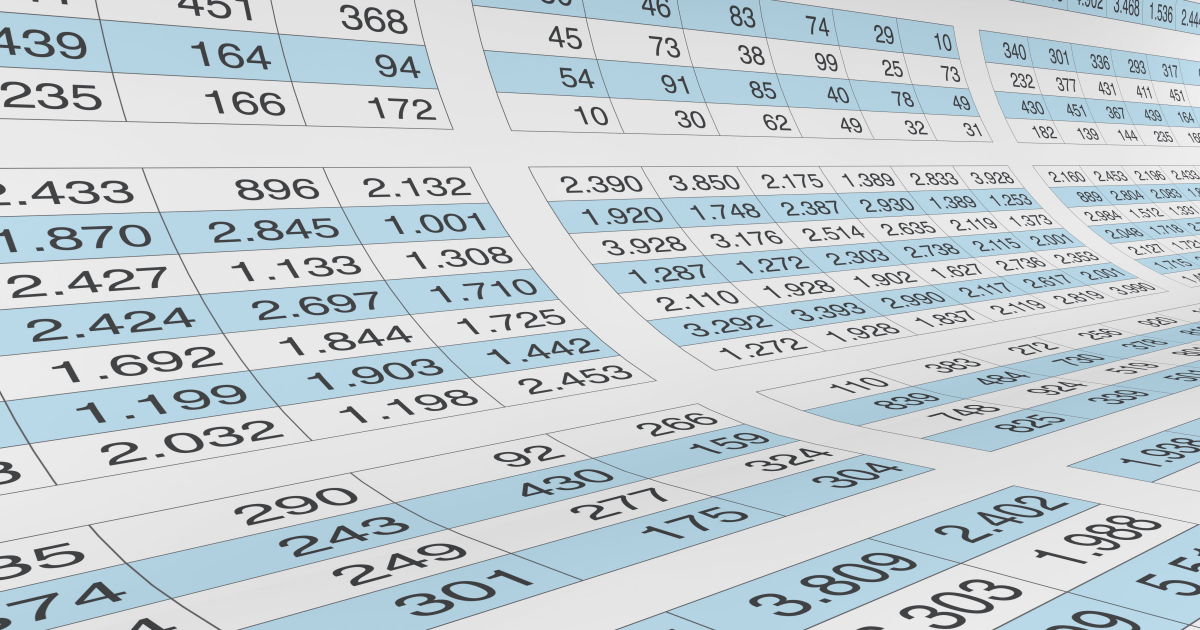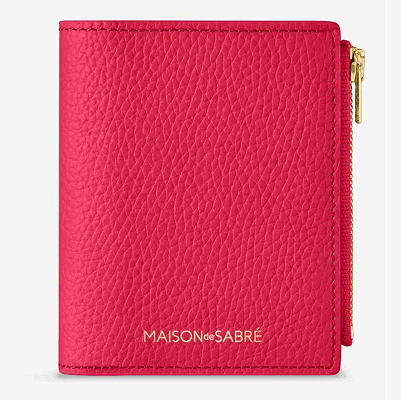What Prices Do You Track?
This post may contain affiliate links and Corporette® may earn commissions for purchases made through links in this post. As an Amazon Associate, I earn from qualifying purchases.

I was looking at an older post of ours on changes to make to save money and thought this might be an interesting discussion to pull out: What, if anything, do you track for prices? What do you buy when there's a good sale?
As I noted in the post,
[A] friend of mine (who started her career working for Woman's Day) spent hours making an elaborate spreadsheet with an average cost per count” for every single thing she bought — and I figured, if I can't put hours into it, why even put a second into it?
Ten years later, though, I found myself noticing store sales — like when CVS or the local grocery store would mark things down. Now I take a loop around the entire store whenever I can, and if things are on a “good” sale then I'll stock up.
My rules are that I have to know I'll use it by the expiration date (usually because I've used that same brand forever, or because it's something generic that I don't care about) and I have to be able to store it somewhere.

Psst: In honor of this series' original title, Tales from the Wallet — here's a wallet we love!

I don't track prices extensively, but I still do for some things…
- Diet Coke — Yes, yes, I know, I should stop drinking soda, but I love my midday Diet Coke, and if I see a great deal then I'll buy a ton of it. (Never Diet Pepsi, but possibly a Diet Dr. Pepper if they've been on sale…)
- Daily things — I generally know a good sale price on everyday things we use, like our Folgers coffee, vitamins, toilet paper, and yes, I stock up when I see a good price.
- We've been placing a lot of orders for grocery delivery this past year, and so I definitely am learning the differences in prices in the options available, and if possible I'll load up at the place with better prices and buy, say, an absurd amount of Bagel Dogs at Store A but only buy one pack if we need them at Store B. (This is another one where I know they're not healthy but my kids love them!)
Side note: Speaking of toilet paper in particular, is it just me or are the manufacturers trying to trick us with packing and pricing? Trying to keep track of how many sheets per roll and how many rolls per case is somehow difficult and it feels like it should not be.
Readers, do tell — do you keep extensive spreadsheets (or even just lists on your iPhone or whatnot) to help you track prices? Do you break things down to a per-unit basis even if the store does not? What prices do you track?
(Ancillary question: How much do you choose your stores based on prices versus other reasons like experience? There's definitely a different vibe among, say, Whole Foods, Trader Joe's, and the local grocery store…)
Stock photo via Deposit Photos / lucadp.

I track my frequent-flyer stores that follow the “Kohls method,” which is that everything is eternally on sale and prices are meaningless without context. For example, I buy my K-care products from Jolse or YesStyle, so I track the purchase history of my cleansing oil and snail mucin because those sites are constantly muddying the issue with sales/coupons/discount codes.
I don’t track as much with food because we have limited space to stockpile perishables, so other than a few big ticket items (boneless skinless chicken breast) I tend to just purchase based around local in-season produce.
I keep very close track of cat litter and food, because prices vary wildly and those can be stockpiled in the basement. I just ordered about six months worth of litter, and the post office hates me.
Speaking from a place of extreme privilege, obvoiusly, but I track nothing. I price shop while I am in a store, but this is not something I want to dedicate time to and I am very fortunate that it doesn’t matter for my own budget.
That said, I never buy clothes full price and do most of my clothes shopping on Poshmark. I go to the grocery store that is the closest to my house and Costco once a month. When I think of it, I use an app to try to find the lowest gas prices, but usually it’s the station by the aforementioned grocery store where I use my points for discounts or Costco (which is out of my way, so I only use if I am already there).
No spreadsheet, but we basically don’t buy any nonperishables that aren’t on sale. We know what a great vs. good sale is for all of our staples like coffee, soup, pasta, yogurt, etc. is. As a result, our grocery trips are typically super-lopsided – one time we might have 20 cans of soup when they’re down to $1 each, etc. The next time we might be stocking up on Bubly water.
And 100% check the per-unit cost! In some cases it’s tricky because you would assume the bigger jar is always less per ounce. Not always, especially if the smaller jars are marked down and the larger is not.
Paper goods – given the sporadic supply this year, we’ve been spending more on those than usual because (a) they are almost never part of a promo this year, and (b) you can only buy so much at a time per household even if you do find a good price.
Bell peppers.
I used to live somewhere they were really cheap, and now I live somewhere they’re strangely expensive. They go on sale regularly and once in a while are on REALLY GOOD SALE. I love them and freeze them, so I don’t mind having a stockpile.
Same! Red bell peppers are super expensive!
And so good, dang it!
In normal times I pick a less expensive set of stores, shopping at Trader Joe’s and a local farm stand before hitting the local gourmet market. In Covid times I have just been going to Sprouts, because it’s not full of Amazon prime shoppers, and not worrying about the cost.
I don’t really track anything? It sounds bad but I lived so far below the poverty line for so long that I just generally am not even a spender to begin with. This means buying without a budget is still fairly inexpensive and it’s an amazing luxury to not have to dedicate brain space to that stuff.
Total agreement on the toilet paper price comparisons being really hard!
We do the majority of our shopping at Trader Joes, which I like because the prices rarely change and are generally fairly low for the quality, so I don’t have to think about it too much. I have a pretty good memory for numbers and keep in my head good prices for the nonperishable staples we buy a lot of elsewhere and stock up when the price goes down. I also use my Amazon wish list, which shows price drops, so for anything I don’t need right away (most things), I wait until the price decreases.
We shop at Trader Joe’s, Kroger, and Costco, with a good idea of what costs less where. Beyond that, we don’t get wound up about an extra ten cents for the product we like better or the one that saves us an extra trip to a different store.
We save far more money by efficiently using what we buy (ie not letting produce go to waste), rather than micromanaging the spending end.
Clothes: I sale stalk relentlessly. I buy baby clothes one size or two sizes up when on sale or when cheap (Costco). Costco has the best prices for formula and most always for diapers; it is not worth my time to check five different stores to find out if one is running a diaper sale that saves me $3 in a given month.
This is not to say that we are reckless spenders… just, not willing to turn ourselves inside out for what amounts to a few dollars a month.
Back in the day I had a whole price book and only bought things on sale at the lowest price. These days I have the luxury of not really worrying about it, although I do shop at the store with the lowest average prices.
I used to have to keep track of every penny I spent at the grocery store and if something was more expensive than I anticipated I would have to figure out right then what trades to make. So I feel very fortunate that I no longer have to do that, even if keeping track would help me save some money. It is a mental luxury I am willing to pay for. Even the ability to shop at Costco and get a good price is a luxury I couldn’t afford before. So I stock up on some things there, but don’t really comparison shop.
I don’t really do price lists and feel fortunate not to need to, but there are some things I won’t buy unless on sale. Like fresh berries, or even frozen fruit I use for smoothies. Likewise English muffins, I’ll buy them when they’re BOGO and stick in the freezer, otherwise I don’t find them worth it. I know certain things are cheaper at certain stores, like Amy’s frozen foods are cheaper at Target than my other grocery stores, so I will buy them when I happen to be there.
When my niece was a baby, my brother was constantly doing a big analysis of the price/diaper at various stores. Because Costco/Amazon/Safeway/Target carried the same diapers but in different size packages (similar to the TP issue).
Does tracking home prices count?
LOL and stock prices?
I don’t track anything per se, but I do roughly know the price of three items at various stores, because the prices vary wildly among stores I generally know which one is cheapest: Yasso frozen yogurt bars, Bai drinks, and Diet Dr. Pepper.
Don’t judge what this says about my eating habits.
All I know is that prices for the things I buy on a recurring basis have gone up a lot since this time last year. I keep running out of things because the price was too high, and then having to do a bit of research to realize that this is the new base price.
I no longer track every item, but have done in the past (Excel) to get an idea of where to shop and get experience with what is a good price. I don’t track things like bananas, milk, apples, eggs etc. These items are often sold at a loss anyhow, since lots of people know what they cost and think they get a good deal.
But I have competing grocery stores where I know that if I’m willing to cross the street (literally, a twenty second walk) I can get a different price. Items where I know there is a 35-50 percent markup at one store (because nobody knows what the item is supposed to cost) I buy at the cheaper store.
Some examples of products I know there is the 35-50 percent price difference (same brand) are dishwasher tablets, unscented body wash, floss, light bulbs, specialty foods (like gluten free), deodorant, fancy salt, fancy greek yogurt. All of these are low frequency buys where people don’t remember, I think.
I stock up only in the cheaper store, or with an offer, on these items that I have identified. Otherwise I have an idea of what I think something should cost, and if I’m at a store that is generally more expensive, like Whole Foods compared to Aldi, I don’t do a full stock-up at the more expensive one for comparable items.
I don’t mind expensive groceries. I do spend more on organic, free range, grass fed and local, because I’m lucky to afford it. Even more so now, because there are other people who do need the cheaper carrots and sticker-offers. But I don’t spend more as a direct mark-up to the store.
One item where I had a fun project, was alcohol. I did blind tests of things I normally like, to see if I can tell the difference. For items where my favorite and a cheaper item that tastes identical have a 35 percent price difference, I get the cheap one!
I definitely don’t worry about comparing toilet paper – agree that it’s way too confusing! I just keep in mind the products my household likes the most. We’re both gluten free, so while I don’t track prices super closely, I do pay attention to a good sale on those specialty items, and have gone as far as to join Thrive Market to save on the snacks and supplements we buy regularly now that my partner is working from home permanently. We’re tight on space, so stockpiling isn’t the way to go for most things (I did regret the 30 lb bag of dog food, if I’m being honest!). But I do keep an eye out for particularly good prices and coupons, and I have a good sense of what a good deal looks like for the things I replace frequently, from personal care to specialty groceries to cleaning supplies. I’m also a diligent reader of the sales flyers, and make a point of planning my meals around the sale items.
I don’t have fancy food tastes and am happy buying generic 90% of the time so my grocery/household supply expenses are generally low. I do watch for skincare products on sale. For clothes, several years ago I pretty much stopped buying items that aren’t as close to perfection as I can imagine, so the value of my expenses in this area also feels good (but I do lose a bit in time, hello 2019 search for an opaque non-wrinkly v-neck white t shirt – uniqlo, if you’re looking!).
Flights are probably the one area where I make a big effort to price watch